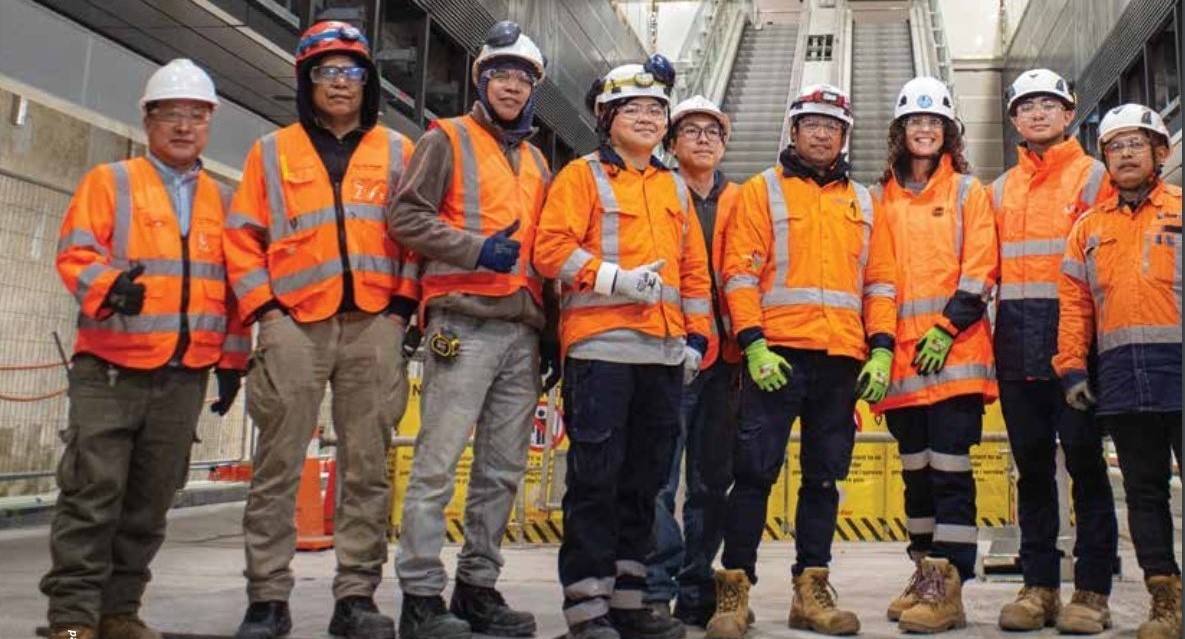Every year New Zealand welcomes a significant number of migrants – approximately 173,000 in 2023, with many of them finding employment in high-risk industries like construction, agriculture, and manufacturing.
Although these sectors provide substantial opportunities, they also come with considerable health, safety, and wellbeing challenges, particularly for those migrants with limited English proficiency.
Migrant workers can find themselves in precarious employment situations with unfavourable work conditions, including job insecurity, low income, lack of rights and protections, participation in multiple part-time jobs, and unpredictable schedules. These conditions contribute to complex outcomes for their health and wellbeing, including psychosocial risks.
Mental health
International agencies have noted that migrant workers face a higher risk of mental health and stress-related issues. Psychosocial hazards in the workplace pose significant risks to migrant workers, exacerbated by a lack of social support and language barriers.
Migrant workers are particularly vulnerable to adverse employment conditions, leading to deteriorating mental health, safety risks, social isolation, financial strain, discrimination, and heightened anxieties about job security and living standards. As a migrant worker, access to healthcare may be affected due to insurance restrictions and non-citizen appointment availability.
These psychosocial impacts require further investigation to fully understand and address them effectively. Workplaces that embrace a risk management strategy to recognise and manage psychosocial risks are better equipped to support all their employees.
Safety communication
Language barriers are a critical safety concern in high-risk industries, and they also pose significant risks to the mental health of migrant workers. The inability to fully understand safety instructions due to limited English proficiency can lead not only to physical accidents but also increases stress and anxiety among workers. Migrant workers might hesitate to seek clarification, worried that it could be perceived as a lack of ability or threaten their employment.
Implementing solutions such as employing bilingual staff and using technological aids like Google Translate can help mitigate these risks and better allows workers’ participation in decision making. Free language course awareness and extending Employee Assistance Programmes (EAP) in the workers’ native language or facilitating free access to psychological support services fosters inclusivity and enhances support. However, barriers to mental health services can include a lack of cultural awareness and competence among providers and a lack of language-appropriate services.
Social isolation
Migrants often leave behind their family networks and support systems, facing loneliness in a new country. This isolation can affect their mental health, increasing stress, depression, and anxiety. Staying in contact with family and friends via phone or video calls often affects workers’ sleep patterns as they navigate differing time zones. Without a support network, migrants might also be unaware of their rights or the available resources to help them navigate these challenges.
To address these issues, initiatives such as mentoring programmes and organising social gatherings and cultural support groups can help educate and foster a sense of belonging and community. Additionally, employers might consider incorporating mechanisms to facilitate annual visits home, such as authority for consolidated leave periods for workers within their contracts, recognising the financial constraints many migrants face in travelling back to see their families. By such measures, employers can help alleviate the sense of isolation experienced by migrant workers and promote their overall wellbeing.
Financial pressures
Other influences on the mental wellbeing of migrant workers include financial pressures. Many send their income overseas to support family members. Financial pressure can compel them to undertake longer hours or riskier tasks to support their families, neglecting their own wellbeing by reducing accommodation and food bills, potentially leading to burnout.
Migrant workers face additional financial burdens for medical services due to their visa status, compounded by a lack of access to health insurance and exclusion from Community Services Cards. Addressing these issues requires policymakers to reconsider provisions such as those in the Holidays Act 2003, ensuring employees have access to paid sick leave from the beginning of their employment, alongside extending health insurance coverage and eligibility for Community Services Cards to all employees. Employers might consider offering financial education support to enhance the financial literacy of their workers and ensure that a living wage is paid at a minimum.
Accommodation issues
Inadequate living conditions, such as overcrowding and poor quality housing, exacerbate stress and prevent proper rest, essential for mental and physical health. Cheaper accommodation often encourages longer commutes, adding to daily fatigue and reducing the time available for restorative activities, such as connecting with friends and exercise, further diminishing mental resilience.
Performing accommodation audits is recommended to ensure that the housing provided to workers complies with established standards.
Security and discrimination
Low-wage migrant workers can grapple with the apprehension of facing retaliation or job loss, which impedes their ability to advocate for safer work conditions or report workplace injuries. This anxiety is compounded by their reliance on employment for visa sponsorship, leading to feelings of powerlessness and reluctance to disclose instances of bullying or discrimination.
WorkSafe has identified workplace bullying as a significant hazard in New Zealand. Implementing a robust and anonymous whistleblower system for reporting safety concerns and grievances helps tackle these challenges. Such measures can alleviate fears of retaliation and empower workers to voice their concerns without hesitation, fostering a safer and more inclusive work environment.
Supporting migrant workers
To effectively address these challenges, it’s important employers and policymakers recognise the risk and develop more inclusive, supportive, and effective health, safety and wellbeing practices to support our valued migrant workers. This includes taking a psychosocial risk management approach, regularly checking in with team members, providing language assistance, culturally appropriate safety training, improved accommodation standards, and robust support systems, including psychological help.
Addressing these issues not only protects one of the most vulnerable segments of the workforce but also enhances overall workplace safety and productivity. As a nation which values fairness and human rights, New Zealand can create a safe and welcoming environment for all workers, regardless of their origin.
Kerry Palmer is wellbeing manager with Link Alliance on the City Rail Link project in Auckland.




